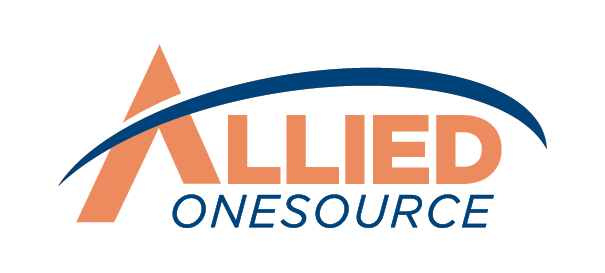Year-End Wrap-Up: Payroll Compliance Updates for 2023
As we approach the end of another year, your business needs to stay updated on the latest payroll compliance to ensure you start the new year on the right foot. Compliance with payroll regulations is crucial not just for avoiding penalties but also for maintaining employee trust and overall business success.
In this year-end wrap-up, we'll explore the different parts of payroll compliance and how your business can ensure it meets all the requirements on the payroll compliance list.
What is Payroll Compliance?
Payroll compliance means businesses must follow the laws when paying their employees, considering local, state, and federal regulations. It goes beyond paying employees on time. It also involves accurately deducting taxes, providing suitable benefits, and following labor laws.
Important Things to Follow for Payroll Compliance
Not adhering to federal payroll regulations can lead to several consequences, such as criminal charges, substantial fines, and the possibility of imprisonment. These penalties tend to escalate over time, meaning delaying compliance can result in even higher costs. In simple terms, non-compliance is not an option.
The Internal Revenue Service (IRS) has collected over $1 billion in penalties due to common payroll mistakes, one of which is "failure to pay."¹ This mistake happens when employers either don't pay their employees at all or pay them incorrectly.
Payroll compliance laws typically cover the following areas:
- Employee Classification: Ensuring employees and independent contractors are appropriately categorized.
- Employee Eligibility: Verifying that employees have the legal right to work in the United States (if applicable).
- Tax Withholding and Reporting: Accurately withheld and reported taxes for employees following local laws and Form W-4, a U.S. tax document employees use to specify the correct amount of money to be withheld from their salary for federal taxes.
- Salary Payments: Guaranteeing that employees receive their pay correctly and on time, following the payroll rules set by the local government.
- Wages and Hours: Ensuring employees get paid at least the minimum wage and meet the mandated hourly work requirements.
- Wage Deductions: Accurately withholding the required amounts from employees' pay for purposes such as child support and garnishments.
- Fund Deposits: Depositing the necessary funds with the appropriate government agencies
- Tax Filings: Submitting the correct tax forms to government agencies as required.
Payroll Compliance Checklist: Are You on Track?
Managing payroll tax filing can sometimes be tricky because tax laws are constantly changing, and there are employee situations to consider. While many businesses in the US do pay their employees correctly and on time, they still find it challenging to follow the rules and regulations consistently.
We've compiled a checklist to guide you through the factors and considerations for payroll compliance to make this process more manageable and less intimidating. Make sure you tick all the boxes to stay on the right track.
1. Maintain Accurate Employee Records
Ensuring you have the correct personal details for each employee might sound simple, but it's essential. Remember that it's your responsibility to maintain accurate records of your employees' information throughout their employment.
Your employees' personal details can change often, like when they get a promotion, a salary adjustment following a pay review, or go on maternity leave; handling these changes is crucial. Even though it might seem a bit challenging at times, keeping their records right is non-negotiable.
2. Clarify Employee Expectations
Ensuring your employees know their responsibilities regarding following the rules is vital. For instance, it's crucial to ensure they adhere to your company's expense policy and accurately record their overtime hours.
Establish procedures explaining how to document expenses and overtime to help your employees correctly. This will help reduce the chances of compliance issues.
Create a comprehensive set of guidelines and procedures that address all the factors affecting your employees' pay. This serves as a helpful reference for your employees and can handle any questions they might have regarding additions or deductions from their earnings.
Related Reading: Ethical Considerations in Staffing: Promoting Fairness and Equal Opportunities
3. Utilize Audit Trails
Did you know that there's a way to protect your business and reputation in case of an investigation? Consider audit trails as the solution; check whether your payroll software includes this functionality.
They allow you to link each transaction with additional information, such as purchase orders and invoices, to confirm any unusual transactions.
Audit trails can also:
- Act as a defense against fraud.
- Guarantee precise corporate accounting.
- Offer valuable insights into your company's overall financial health.
4. Stay Updated on Payroll Laws
Keeping up with payroll laws is essential because they can change often. Participating in payroll seminars, watching webinars, and attending industry conventions can help enhance your understanding of payroll compliance.
You'll discover that these events provide insights on various subjects, including updates to legislation and new payroll processes. You will also gain insights into recent regulatory changes, developments in the industry, new ways to manage payroll, and other topics that affect payroll management.
5. Timely Payroll Data Submission
Delays in submitting payroll information can lead your business to face penalties. Managing payroll can be quite intricate, with various factors to consider, such as:
- Meeting tax deadlines
- Adjusting paydays
- Quarterly reporting
So, it's essential to allocate sufficient time for these tasks.
Consider creating an annual calendar to assist you in staying organized. This calendar should include all critical dates requiring your attention, such as timesheets, invoice submissions, and payment due dates. This way, essential tasks aren't overlooked.
This will also inform your employees about their payment schedules and help maintain a smooth payroll process.
Benefits of Getting Payroll Services
Payroll compliance can pose significant challenges, risking legal repercussions and penalties for your business. It's a scenario you definitely want to avoid. That's where a payroll service can help you out.
Outsourcing payroll services will increase by around 6% over the next four years.² This shows that more companies hire external services to manage their payroll needs. Payroll solution providers are equipped with experts in navigating complex compliance issues, reducing the risk of costly errors and legal troubles.
They can also manage administrative tasks including payroll processing, managing employee records, and handling tax filings with a dedicated team of professionals.
To add to the list, here are a few more advantages that come with payroll services:
Generate Cost Savings
Hiring a full-time employee can be expensive, considering their salary and additional costs like benefits (Medicare, healthcare, social security, state unemployment, insurance, and 401(k) plans), which can be around 18%-20% more than their base salary. Payroll services help cover these expenses, allowing you to control your employee costs effectively.
Related Reading: Leveraging Technology for Effective Staffing: Tools and Platforms for Success
Protect You from Co-Employment Risks
Hiring a new employee or sharing employment risks with another company can be risky. But when you partner with a payroll solution provider, the employees are considered employees of that provider, which protects you from co-employee risks. They also provide all temporary employee benefits like insurance and workers' compensation.
Provide Greater Flexibility for Your Organization
Payroll services also empower your organization with the flexibility to test a resource through short-term contracts. This arrangement allows you to evaluate their performance and value without the obligation of permanently adding them to your staff. It reduces risks and simplifies hiring temporary employees.
A payroll solution provider offers an easy way to employ temporary or trial-period employees, and you can convert them to full-time whenever needed.
Related Reading: Customized Staffing Solutions: Tailoring Services to Meet Employers' Unique Needs
STREAMLINE YOUR PAYROLL MANAGEMENT WITH ALLIED ONESOURCE
Are administrative tasks like payroll management becoming overwhelming for your business? It might be time to consider payrolling services. Allied Onesource can help alleviate the administrative burdens associated with payroll, allowing you to focus on what matters most – growing your business.
Not only do you benefit from our compliance expertise, but you also enjoy a more streamlined and efficient payroll process. You'll get the benefits we've mentioned, plain and simple. Inquire with us today!
References
1 “Collections, Activities, Penalties, and Appeals | Internal Revenue Service.” www.irs.gov, www.irs.gov/statistics/collections-activities-penalties-and-appeals.
2 “Payroll Outsourcing Services Market by Product, Application, and Geography - Forecast and Analysis 2021-2025.” Technavio, www.technavio.com/report/payroll-outsourcing-services-market-industry-analysis/.










